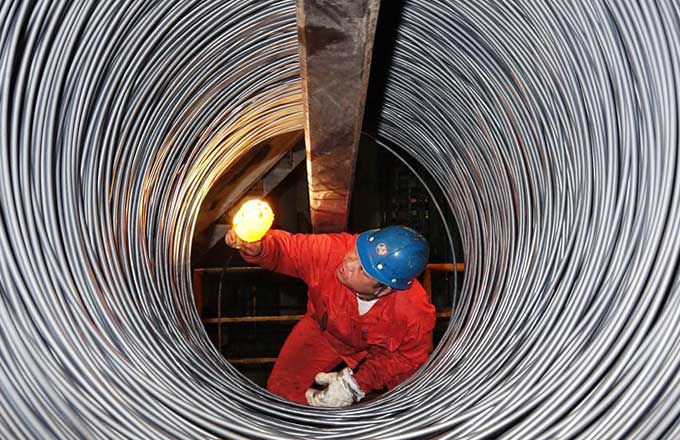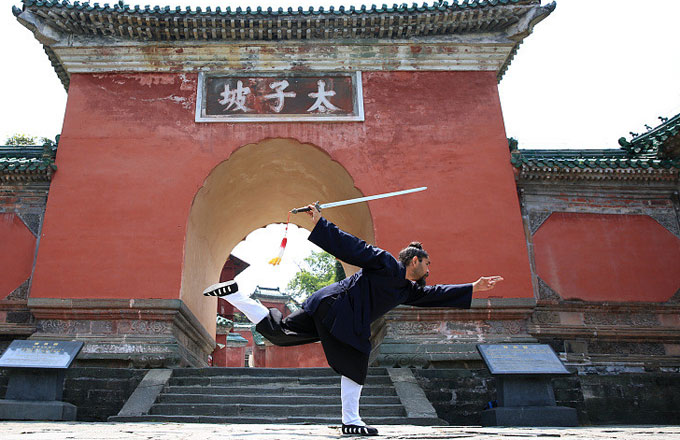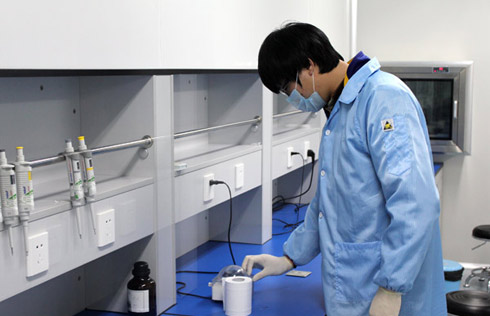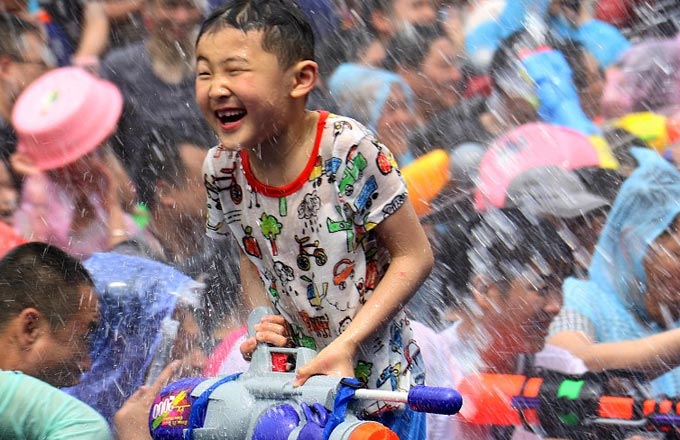Judicial assessment industry faces major shakeup
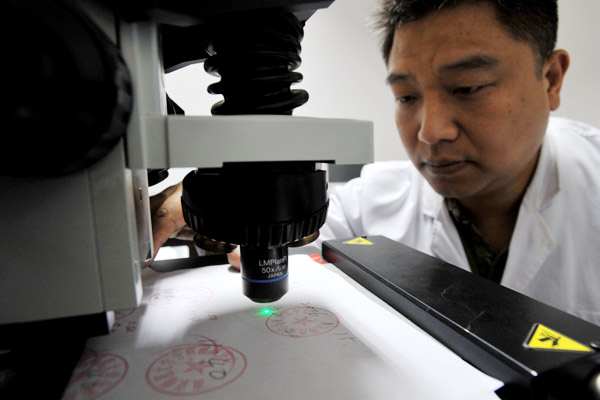 |
|
An assessor checks the validity of company seals at a center in Nanjing, Jiangsu province. [Photo by Wang Chengbing / For China Daily] |
The ministry said that in addition to clamping down on high fees, it has prioritized improvements in the quality of work carried out by third-party appraisal institutes.
By the end of last year, 4,872 institutes and 54,198 assessors - who provide verification of materials related to medical checks, documents, voice traces and environmental damage - had registered with the ministry.
Private institutes conducted more than 2.13 million assessments last year, but not all of them were qualified to do so.
"Every year, we discover about 3,000 or 4,000 unqualified assessors and close hundreds of unqualified institutes," Zhang, the minister, said. He added that last year, 132 were closed and removed from industry lists, while about 4,400 assessors were banned from working in the industry.
"The large number of closures and removals has alerted us that our supervision is still not good enough," he said.
Luo Yaping, a professor at the People's Public Security University of China, said the sector is chaotic, and some of the verification methods used by private appraisal centers require urgent regulation.
For example, people can take a DNA test if they become involved in a civil dispute, she said: "However, there are different views on the identification of DNA, which often results in confusion. A unified DNA verification system would ensure the quality of appraisals and contribute to the industry's development."
Disordered evaluations
Luo suggested the ministry should strengthen annual supervision of private appraisal institutes and improve the qualification threshold for assessors.
At present, assessors are only required to have a relevant qualification, such as a degree in medicine or biology. "After that, the process of evaluation and examination is not good enough", she said.
"Stricter entry exams, more checks of facilities in private institutes and regular training for assessors are required."
She added that those measures were adopted long ago in expert testimony departments operated by the public security authorities.
Last year, the authorities in Beijing raised the number of random evaluations and examinations for assessors, and also built a database containing 1,083 examples and scenarios to help assessors become more familiar with the skills required to provide verification.
The justice ministry also provided training for more than 6,000 forensics officers from private appraisal institutes across the country.
Contact the writer at caoyin@chinadaily.com.cn






